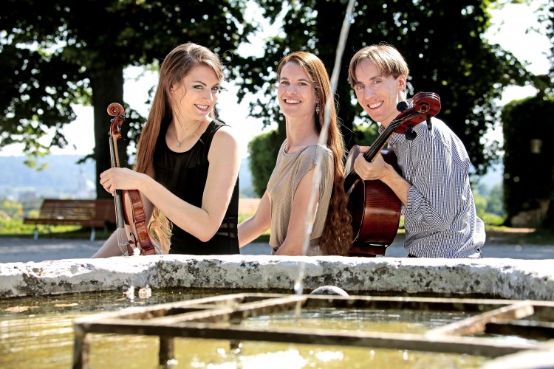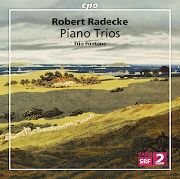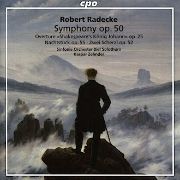Robert Radecke twice
The Trio Fontane and the Biel Solothurn Symphony Orchestra present music by Robert Radecke. Both the chamber and large ensembles perform with great skill and musical joy.

Robert Radecke (1830-1911) is no stranger, but a name that raises questions. Is he a musician, a conductor or a composer? Well, Radecke distinguished himself as a conductor in Berlin in the second half of the 19th century. From 1853, he was the second violinist in Ferdinand Laub's famous quartet, while the multi-talented musician also caused a sensation as a virtuoso pianist with Beethoven's late piano sonatas. The bustling Radecke would have liked to have had more time to compose - he was little different to his busy colleagues Gustav Mahler or Richard Strauss.
At least a small oeuvre came into being. The Swiss Trio Fontane, founded in 2002, presents three piano trios by the composer Radecke. It is good music, with no trace of idleness and a high level of craftsmanship. Stylistically, Radecke moves between Robert Schumann and classical romanticism. In doing so, he does not profess to belong to the progressive-minded New German school in the wake of Richard Wagner or Franz Liszt.
Despite its unmistakable traditionalism, Trio Fontane paints a lively picture of Radecke's music. Noëlle Grüebler on the violin and Jonas Kreienbühl on the cello cultivate an elegant, mature tone. Andrea Wiesli accompanies on the grand piano in an unagitated, yet very sensitive manner, without falling too much into a - at times quite obvious - romantic sweetness. The sound engineers found a good dynamic balance. They contribute to the fact that the production released by cpo is a pleasure to listen to.
Robert Radecke: Piano Trios. Trio Fontane (Noëlle Grüebler, violin; Jonas Kreienbühl, cello; Andrea Wiesli, piano). cpo 777 996-2
The Sinfonie-Orchester Biel Solothurn (SOBS), which recorded four orchestral pieces for the first time on another Radecke CD, is also confident in tone and tempo. In the Symphony in F major for orchestra op. 50 from 1877, Schumann's influence is again unmistakable; the bright sound and song-like themes are strongly reminiscent of his symphonies, especially the Rhenish. Under the direction of Kaspar Zehnder, born in Riggisberg in 1970, the SOBS rehearsed not only the symphony lovingly and with the necessary attention to detail, but also Radecke's incomparably darker overture Shakespeare's King John op. 25 and a Night piece op. 55 and Two Scherzi op. 52. Such outstanding interpretative quality, awarded five Diapasons, should be an argument for the preservation of the orchestra. As things stand at present, the sword of Damocles continues to hang over the orchestra. The city of Biel has to make savings, it is said. More than a quarter of Biel's residents signed a petition against the closure in 2015. May it be of use!
Robert Radecke: Orchestral Works (world premiere recording). Symphony Orchestra Biel Solothurn; conductor Kaspar Zehnder. cpo 777 995-2









